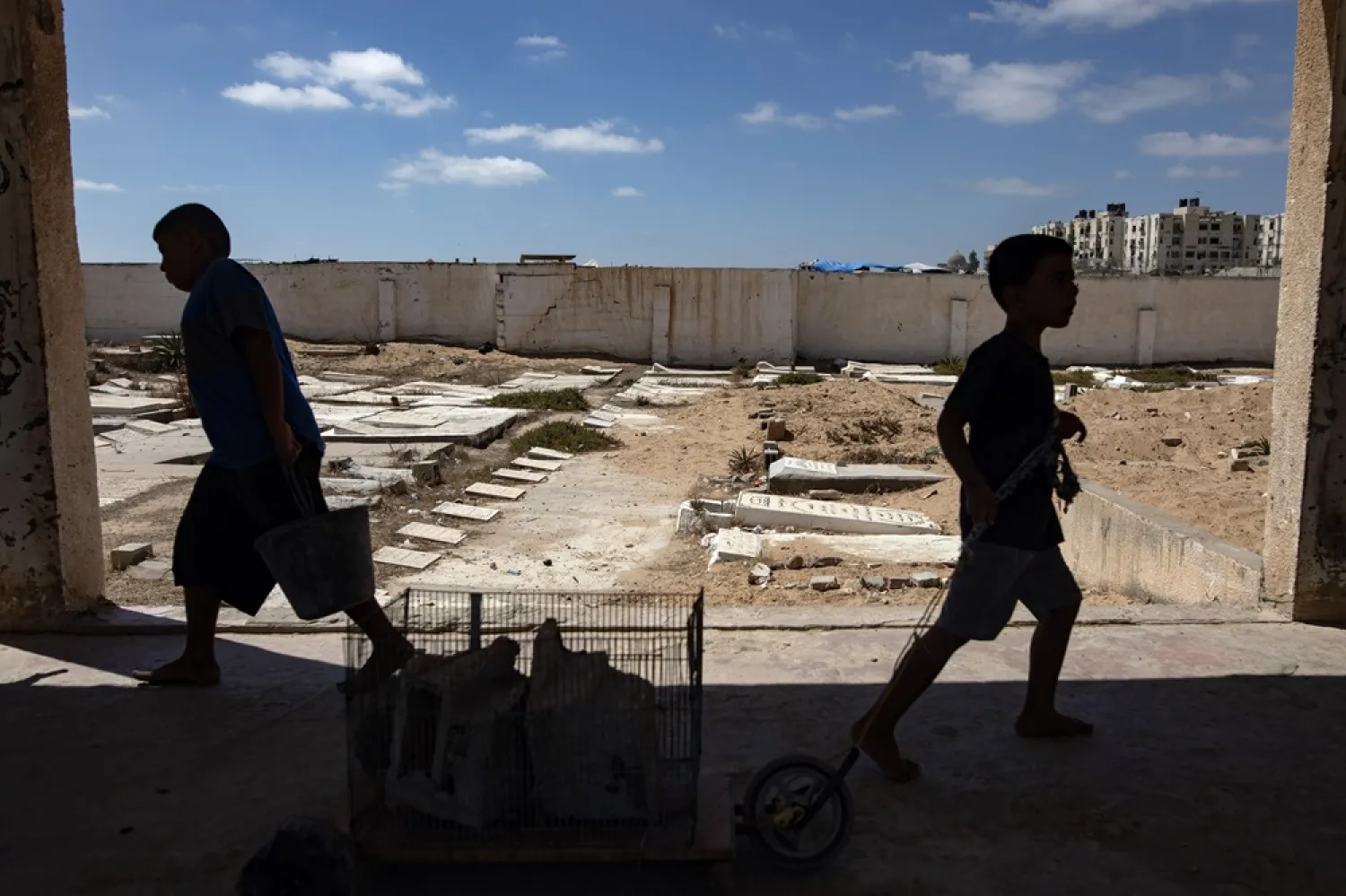Israeli airstrikes across Gaza killed at least 50 Palestinians in the past 24 hours, Palestinian health officials said on Wednesday, after US Secretary of State Antony Blinken ended his latest visit to the region with a truce deal still elusive.
As last-ditch diplomacy continued to halt the 10-month-old war between Israel and Hamas, the Israeli military said jets hit around 30 targets throughout the Gaza Strip including tunnels, launch sites and an observation post.
It said troops killed dozens of armed fighters and seized weapons including explosives, grenades and automatic rifles.
Later in the day, the Israeli military struck a school and a nearby house in Gaza City, killing at least three people and wounding 15, the territory's Civil Emergency Service said.
The military said in a statement that it had hit Hamas fighters operating at a command center located inside a compound that had previously served as a school.
It accused Hamas of continuing to operate from within civilian facilities and areas, an allegation Gaza's dominant armed group denies.
In the town of Bani Suhaila near Khan Younis in the southern Gaza Strip, an Israeli airstrike killed seven Palestinians at a tent encampment for displaced people, medics said.
The military issued new evacuation orders in the heavily overcrowded area of Deir Al-Balah, in central Gaza, where hundreds of thousands of Palestinians displaced by the fighting have sought shelter.
The orders, which the military said were needed to clear civilians from what had become "a dangerous combat zone", were soon followed by tank fire with at least one person killed and several wounded by machine gun fire, medics and residents said.
The conflict churned on as Blinken wound up his ninth troubleshooting visit to the Middle East since the Gaza war erupted last October with still no sign that deep differences between the sides over how to end the war could be reconciled.
Blinken's talks with leaders of ceasefire mediators Egypt and Qatar, as well as in Israel, focused on the fate of tiny, crowded Gaza, where Israel's military campaign has killed more than 40,000 people since October according to Palestinian health authorities, and of the remaining hostages being held there.
The war began on Oct. 7 last year when Hamas gunmen stormed into Israeli communities and military bases, killing around 1,200 people and abducting about 250 hostages, according to Israeli tallies.
For displaced people left exposed in Deir Al-Balah, the lack of progress towards a ceasefire compounded the misery as they searched for space away from the fighting.
"Where will we go? Where will we go?" said Aburakan, 55, a displaced person from Gaza City in the territory's north who has had to change refuge five times since October.
"We feel they are closing in. I live a few hundred meters from the threatened areas, and I have been searching since the early morning in vain for a space in western Deir Al-Balah, Khan Younis, or Nuseirat," he told Reuters via a chat app.
"Unfortunately, we may die before we see an end to this war. All ceasefire talk is a lie."
Palestinian and United Nations officials say most of the 2.3 million population have become internally displaced by Israel's ongoing ground operations and bombardment that have also flattened swathes of built-up areas across the enclave.









